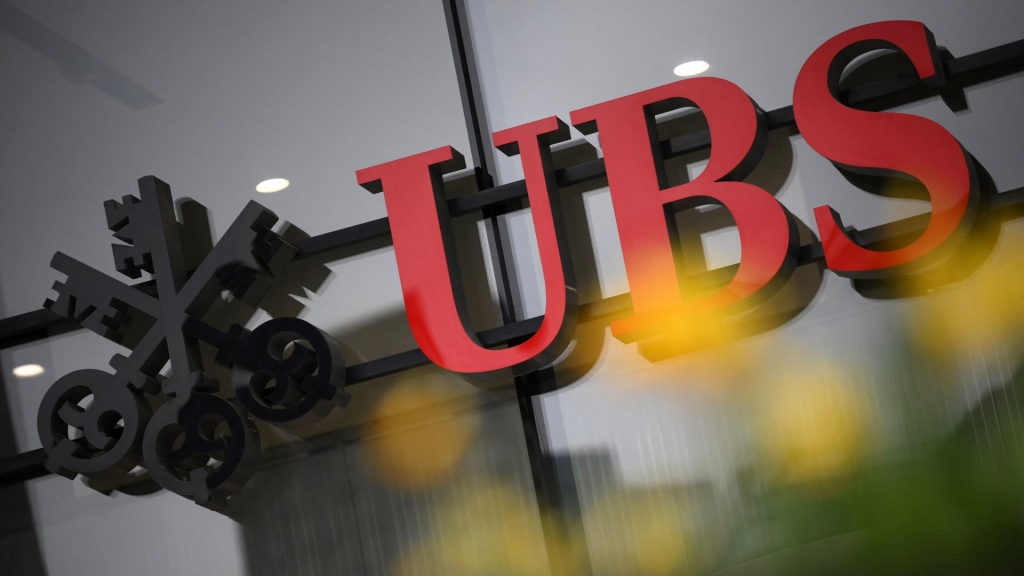UBS, Switzerland’s largest bank, reported on Wednesday that it exceeded expectations for its first quarter, primarily driven by strong performance in investment banking. However, the bank also cautioned about the potential ramifications of extensive U.S. tariffs on global trade as it attempts to stabilize its declining stock prices.
In the first quarter, UBS recorded a net profit of $1.692 billion attributable to shareholders, surpassing the consensus estimate of $1.359 billion from analysts polled by LSEG. The group revenue for the quarter was reported at $12.557 billion, slightly short of the anticipated $12.99 billion.
Key highlights from the first quarter included:
- The return on tangible equity was noted at 8.5%, a significant increase from the previous quarter’s 3.9%.
- UBS maintained its CET 1 capital ratio—the measure of bank solvency—at 14.3%, consistent with the December quarter.
The bank indicated a remarkable 32% year-over-year increase in revenues from its global markets division, driven by heightened client activity across equities and foreign exchange, which benefitted all regions.
Notably, UBS also reported a net interest income (NII) of $1.629 billion, marking a decline of 16% compared to the previous year and an 11% drop from the fourth quarter. They expect this trend to continue into the second quarter.
“We project a low single-digit percentage decrease in net interest income in Global Wealth Management for the second quarter, while Personal & Corporate Banking’s NII in Swiss francs is expected to mirror this decline. However, in US dollar terms, we anticipate a mid-single-digit percentage increase for Personal & Corporate Banking’s NII, driven by current exchange rates,” UBS stated.
As European banks navigate a shift towards monetary easing, investors are closely monitoring these indicators, especially in Switzerland, where the central bank has been addressing a strong franc and low inflation with interest rates as low as 0.25%.
On Wednesday, UBS announced the completion of $500 million in share buybacks and confirmed the continuation of a $2.5 billion share repurchase plan through 2025.
Outlook on Tariffs
Recently surpassed as the largest bank in continental Europe by market capitalization by Banco Santander, UBS has seen its shares decrease by approximately 10% this year, largely following the U.S. government’s imposition of tariffs on trade partners starting April 2.
Switzerland faces significant tariffs, potentially up to 31%, if a favorable trade agreement is not reached with the United States by early July, compared to a 20% tariff burden faced by the European Union.
The geopolitical tensions with the U.S. and concerns regarding a possible recession in the world’s largest economy pose challenges for UBS and its lucrative global wealth management segment, with nearly half of its assets located in the Americas last year.
“The swift and large-scale adjustments to trade tariffs, the risk of escalations, and substantial macroeconomic unpredictability led to pronounced market volatility earlier in April,” UBS remarked. “With numerous possible outcomes, the economic trajectory appears particularly uncertain. The looming prospect of increased tariffs on global trade poses a significant threat to both global growth and inflation, complicating the interest rate landscape.”
Furthermore, UBS flagged the potential for “additional spikes in volatility” as the markets remain attuned to ongoing tariff-related developments, warning that “prolonged uncertainty could dampen sentiment, causing businesses and investors to postpone essential strategic and investment decisions.”
UBS’s long-term profitability outlook is further clouded by uncertainties regarding forthcoming and potentially more stringent capital requirements from Swiss regulators, who have raised concerns about the bank’s “too big to fail” designation in light of its acquisition of the defunct Credit Suisse. This move, which was previously endorsed by a politician as the “deal of the century,” has led UBS to resist additional restrictions, arguing that they would undermine its competitive position as an adequately capitalized entity.
“UBS’s lobbying efforts are noticeable and impactful,” commented Swiss President Karin Keller-Sutter during a recent interview with broadcaster SRF. “However, the Federal Council’s priority is to safeguard taxpayer interests, ensuring that in times of crisis, a systemically important UBS can be effectively managed. This includes the ability to separate critical parts of the bank within Switzerland, which is a key goal that we must pursue through new legislation.”


























